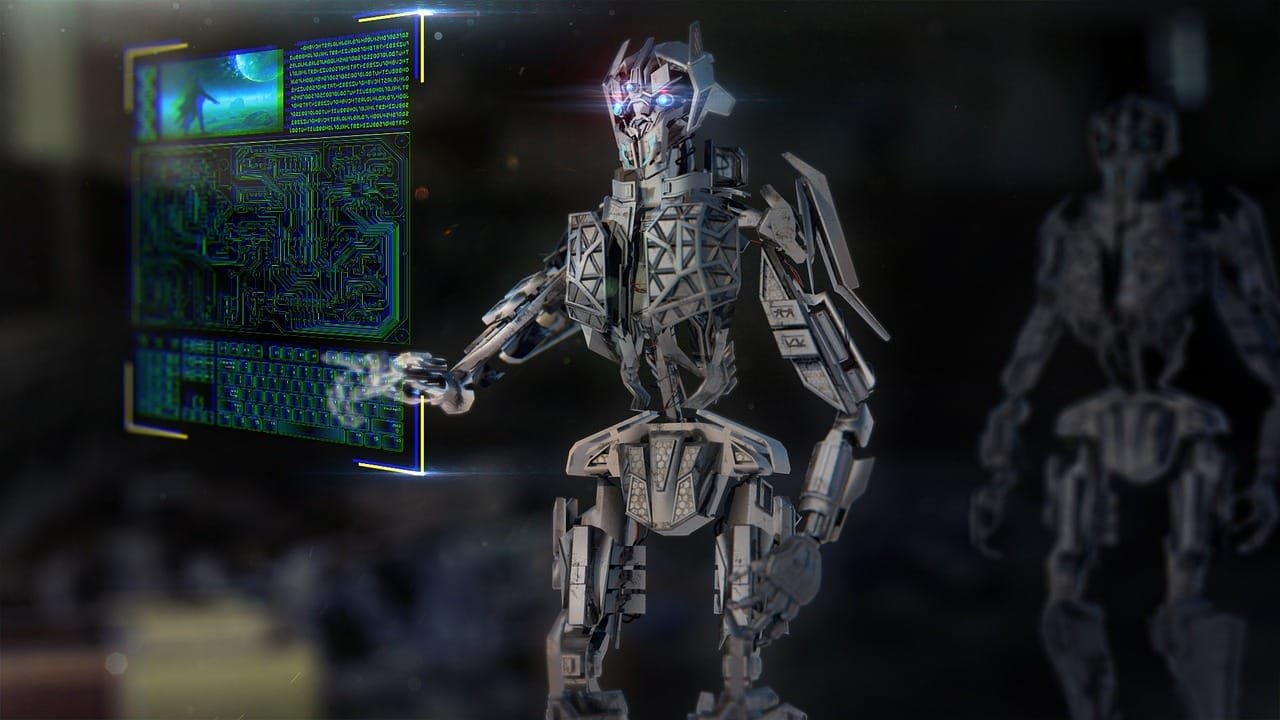In the age where data is gold and personalization is the currency for engagement, Artificial Intelligence (AI) and Machine Learning (ML) are emerging as pivotal tools in the arsenal of modern content marketers.
In a world barraged with content, standing out isn’t about the noise but nuances, and AI & ML are transforming this narrative, one data point at a time.
The Dawn of Data-Driven Content
As a marketer, imagine knowing not just the demographics but the psychographics of your audience. Imagine tailoring content that aligns not just to what your audience wants but anticipates what they need. AI and ML are no longer the tools of the future but the architects of the present, curating content experiences that are personalized, predictive, and potent.
From Netflix’s eerily accurate recommendations to Amazon’s intuitive product suggestions, AI & ML have shifted from being backend algorithms to front-end engagement catalysts.
AI & Content Creation
Personalization at Scale
One of AI’s cardinal contributions to content marketing is personalization. But this isn’t your traditional, “insert name” personalization. AI leverages data to create content that resonates on a personal level. Tools like Grammarly and Copy.ai are not just correcting grammar but tailoring tone, style, and content to match the unique preferences and behaviors of the audience.
Quality & Efficiency
AI-powered tools are transforming content creation. They ensure consistency in quality and tone, reducing human error, and enhancing readability. Tools like Jasper, CopySmith, and Writesonic are empowering content marketers to produce quality content at scale, combining the art of writing with the precision of algorithms.
SEO Optimization
In the labyrinth of SEO, AI is the guiding light. It’s equipping marketers with insights, not just data. Tools like Clearscope and MarketMuse assess and optimize content for SEO in real-time, ensuring that content isn’t just created but seen, not just published but found.
Machine Learning in Content Strategy
Predictive Analytics
ML dives into the oceans of data to find patterns, insights, and trends. It’s predictive analytics that’s helping marketers not just look back but forward, anticipate trends, and stay ahead. ML algorithms analyze user behavior, engagement metrics, and market trends to inform content strategy.
User Experience
ML is enhancing user experience by customizing website content, layout, and features based on user behavior. Every click, hover, and scroll is data, informing ML algorithms to curate personalized user experiences. It’s not just about user-friendly but user-favored experiences.
Content Distribution
ML is revolutionizing content distribution. It’s ensuring that content finds its audience through the most effective channels, formats, and times. It’s automating distribution, ensuring that content doesn’t just reside but reaches and resonates.
AI & ML: The Future of Content Marketing
As we catapult into an era where content is created every second, AI and ML are not optional but essential. They are the bridge between content creation and content consumption, ensuring that in a world echoing with content, your voice is heard, your content is seen, and your brand is remembered.
The integration of AI and ML in content marketing isn’t a trend but a transformation, turning the art of content into a science, making creativity countable, and ensuring that engagement isn’t just measured but maximized.
AI in Audience Segmentation and Targeting
Richer Audience Insights
The digital footprint of online users is a goldmine of data. AI excavates this data to offer richer insights into audience behaviors, preferences, and tendencies. Content marketers are now equipped with detailed user profiles, well beyond the traditional demographic data. It’s about knowing the audience’s content consumption patterns, their interaction with previous content, and their engagement triggers.
Hyper-Personalized Content
With these enriched audience insights, content creation transforms. It’s not just about mass content but mass personalization. AI enables marketers to tailor content that caters to individual user preferences, leading to increased engagement and connection. Every piece of content, from blogs to emails, is personalized, making each audience member feel understood and valued.
Machine Learning in Content Optimization
Dynamic Content Adaptation
ML algorithms adapt in real-time. They learn from every user interaction, continuously refining and optimizing content for better engagement. For instance, if a particular blog post isn’t resonating well, ML tools can automatically tweak the content, adjust SEO strategies, or even change visual elements to enhance engagement.
A/B Testing on Autopilot
Remember the days when A/B testing was a manual, time-intensive process? ML has turned this on its head. Machine learning algorithms can now run multiple A/B tests simultaneously, drawing precise insights and automatically implementing changes that maximize content performance.
The Symbiosis of AI & Human Creativity
Enhanced Creativity
AI and ML are not replacing human creativity but enhancing it. With AI taking over data crunching and analytical tasks, content creators are free to focus on creativity and innovation. It’s a partnership where AI provides insights, and humans translate these insights into compelling, engaging content.
Ethical Considerations
As we embrace AI and ML, ethical considerations surface. Issues like data privacy, consent, and transparency become pivotal. Content marketers are not just tasked with leveraging AI for engagement but doing so ethically, ensuring that personalization does not infringe on privacy.
Future Trends
AI-Powered Video Content
Video content is king in the digital landscape. AI is stepping in to personalize video content, adjusting elements like pacing, visuals, and even narratives based on user preferences. AI tools like DeepArt and Runway are enabling marketers to create personalized video content at scale.
Voice Search Optimization
With the surge in voice-activated devices, content optimized for voice search is a frontier uncharted. AI is aiding marketers to understand voice search behaviors, optimize content for voice search, and ensure that in the world of voice activations, their content is heard.
AI in Content Analytics
Beyond creation and distribution, AI’s role in content analytics is burgeoning. It’s not just about quantitative analytics but qualitative insights. AI is offering a deep dive into how content is being consumed, the emotional reactions it’s triggering, and the conversations it’s igniting.

Related: Check out our free SEO suite

Integrating AI and Machine Learning with Content Marketing Strategies
Automated Content Generation
AI is now capable of producing basic content for a variety of applications, including financial reports, sports news, and more. Tools like OpenAI’s GPT-3 are being fine-tuned to generate more coherent and relevant content. The integration of AI in content creation is not about replacing human writers but about amplifying productivity and creativity. Humans are needed to add the soul, emotion, and creativity that machines cannot mimic.
Chatbots and Virtual Assistants
Customer engagement is at the core of content marketing, and AI-powered chatbots and virtual assistants are playing a pivotal role in enhancing this engagement. They deliver personalized content interactions and instant responses, leading to improved customer experience. These AI companions are being integrated into websites, social media, and other platforms to interact with the audience in real-time, offering tailored content experiences.
AI’s Role in Content Curation
Smart Content Recommendations
AI engines analyze user behavior, preferences, and interactions to provide smart content recommendations. It’s about delivering the right content to the right audience at the right time. These personalized recommendations enhance user engagement, increase content consumption, and boost retention rates.
Predictive Analytics
AI and machine learning algorithms analyze historical data to predict future trends. In content marketing, predictive analytics can forecast content trends, audience behavior, and engagement patterns. This foresight allows content marketers to tailor their strategies proactively, aligning with anticipated trends and audience preferences.
The Integration of AI in Social Media Marketing
Sentiment Analysis
AI algorithms can analyze social media posts, comments, and mentions to gauge public sentiment about a brand or topic. Sentiment analysis offers insights into audience perceptions, feelings, and attitudes, enabling content marketers to tailor their strategies for optimal resonance and engagement.
Automated Social Media Management
AI tools are revolutionizing social media content strategies by automating post scheduling, audience targeting, and engagement tracking. These tools optimize social content delivery for maximum impact, reaching target audiences with precision and efficiency.
Content Security and Authenticity
Combatting Content Plagiarism
In the digital age, content plagiarism is a pervasive challenge. AI and blockchain technologies are converging to combat this issue. AI algorithms can detect content duplication, while blockchain ensures content authenticity and security.
Deepfakes and Content Authenticity
The rise of deepfakes poses threats to content authenticity. AI is playing a dual role—facilitating deepfake creation and combating it. AI algorithms are being developed to detect and flag deepfake content, ensuring content authenticity and credibility.
AI-Powered SEO: Revolutionizing Content Visibility and User Engagement
As AI continues to carve its niche in the world of content marketing, it’s not just about creation and curation but also about optimization. SEO, a crucial component of digital marketing, is being transformed by AI’s power, precision, and predictive capabilities.
AI-driven Keyword Optimization
The traditional method of keyword stuffing is long gone. AI is ushering in an era of smart keyword optimization. Tools like Clearscope and MarketMuse employ AI to analyze top-performing content across the web and provide actionable insights on keyword placement, content structure, and topical relevance. These insights enable content creators to optimize content not just for search engines but for enhanced user engagement and value.
User Experience Optimization
AI is bridging the gap between SEO and user experience. Google’s BERT and Core Web Vitals are testaments to the search engine giant’s focus on user experience. AI algorithms analyze user behavior, interaction patterns, and feedback to optimize web designs, content layouts, and navigation structures, ensuring seamless, intuitive, and engaging user experiences.
The Rise of Voice Search
AI and Natural Language Processing (NLP)
With the proliferation of voice-activated assistants like Alexa, Siri, and Google Assistant, voice search is on the rise. AI, coupled with NLP, is at the core of this evolution. Content marketers need to adapt their SEO strategies to accommodate voice search trends, focusing on conversational keywords, question-based queries, and local SEO optimization.
Semantic Search Optimization
AI is transforming SEO from keyword-centric to intent-based, courtesy of semantic search. Content optimization is no longer about incorporating exact-match keywords but about understanding user intent and providing comprehensive, relevant, and contextual content solutions. AI tools analyze user queries, contextual elements, and behavioral patterns to offer content that aligns with user intent, enhancing content relevance and user satisfaction.
Final Thoughts
As AI and machine learning continue to infiltrate content marketing, the dynamics of content creation, distribution, and engagement are undergoing a seismic shift. The future beckons a more personalized, dynamic, and interactive content landscape where content is not just consumed but experienced.
Brands and content marketers should embrace these technologies, not as replacements but as allies. AI is the compass that navigates the vast, complex terrain of audience data, leading to enriched, personalized, and impactful content experiences. In this evolving narrative, the role of human creativity and innovation is not diminished but elevated.
With the insights and efficiencies AI offers, content marketers are free to explore the depths of creativity, innovation, and engagement, charting a course into a future where content is not just king but a dynamic, interactive realm of personalized experiences.
READ NEXT:
- Content Marketing vs. Traditional Advertising: Which Delivers Better ROI?
- Let’s Discuss How We Can Help Improve Your Business
- The Complete Guide to International SEO: 2023 Best Practices!
- 10X Your Digital Marketing Now! Skyrocket Your Leads in 30 Days
- Building a Startup Keyword List: Tips and Best Practices






















Comments are closed.